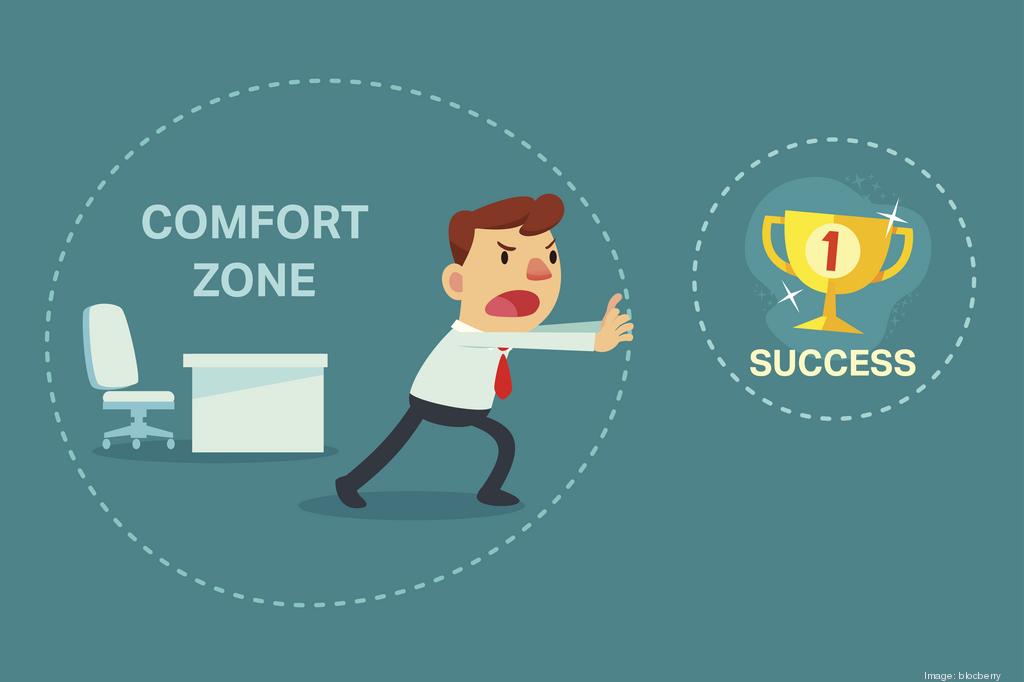Article originally published in the Philadelphia Business Journal on February 28, 2022.
As the newly appointed CEO of Peloton, Barry McCarthy is facing a significant turnaround challenge. The pandemic-driven desire for people to exercise at home in a subscription-based streamed spin bike class was not sustainable. As a result, Peloton’s financial performance significantly declined as the pandemic wore on. On Feb. 8, the company was forced to lay off 2,800 employees.
In a Feb. 16 Inc. article, tech columnist Jason Aten shared the 10 values that McCarthy communicated to Peloton’s remaining employees that would be “reflected in my day-to-day interactions” with you. Aten identified what he felt was the most important of McCarthy’s values: “Your comfort zone is your own worst enemy.” McCarthy was committing to operate outside of his comfort zone and encouraging his employees to do the same.
Aten writes, “Success has a funny way of making you comfortable… and sometimes, too comfortable. If the thing you’re doing appears to be working, your natural inclination is to do more of it … The problem is, when you’re comfortable, you have no motivation to look around and think about what might need to change.”
Getting out of your comfort zone drives business results and further develops your professional skills. In a December 2020 Fast Company article, Harvey Deutschendorf writes that getting out of your comfort zone “develops your inner strength, builds your confidence, makes us more adaptable to change, makes us more creative and [avoids having us wonder] … what could have been.”
I have previously written about an experience I had with getting out of my comfort zone. Because it was so impactful to me, I am again sharing that experience.

When I was the business manager for one of my company’s industrial products, we faced stiff import competition from Rhone Poulenc (a large multinational French company) at a price significantly below their home market price. We felt this was a violation of U.S. dumping regulations, which are designed to protect U.S. industry from unfair international trade practices. I knew I had to take action.
I received approval from my company’s CEO to file dumping charges with the U.S. International Trade Commission. If found guilty of dumping, the remedy would be the assessment of dumping duties on this product imported into the U.S. by Rhone Poulenc.
The attorney retained by our company’s general counsel insisted that my product manager and I be the public face of our company’s case. We knew we would be way out of our comfort zone. Our attorney wanted the optics of a small, privately-owned, domestic company competing against a foreign company many times our size, dumping product into the U.S. market.
The preparation for the hearing in front of the ITC was very intense. Over many months, we responded to numerous questions from the ITC investigative staff in preparation for the hearing. We were honest and factual. Whenever we realized that we had provided information to the staff that was inaccurate, we immediately corrected it, even if it hurt our case. This helped build our credibility and trust with the ITC staff.
The hearing in front of the five ITC commissioners was held in a chamber very similar to that of the Supreme Court. Very intimidating! A pivotal moment occurred when the Rhone Poulenc business manager misrepresented a meeting they had with us, accusing us of improper marketplace behavior. The chairperson of the ITC asked him if he had notes of that meeting. He responded no.
I whispered to our attorney that we had notes of that meeting which countered their testimony. He asked me to pull the notes, and as he read them, a smile crossed his face. When entered into evidence, our meeting notes undermined much of Rhone Poulenc’s credibility.
When the ITC commissioners announced their decision, they unanimously ruled in favor of my company. My product manager and I felt as if we had won gold medals at the Olympics.
So, what did we learn from this experience? We learned to operate under pressure, to get out of our comfort zone and to encourage others to do the same. We also learned that when dealing with others, you develop credibility by being honest and factual. This will differentiate you from those that are not. Credibility builds trust and confidence, and this will favor you in borderline decisions.
Leaders, expose your employees to new, meaningful experiences. Get them out of their comfort zones. There is no better way for them to develop and help your company grow. This is why McCarthy included getting out of your comfort zone in his list of 10 values, and it’s why Aten identified it as the most important.
Stan Silverman is founder and CEO of Silverman Leadership and author of “Be Different! The Key to Business and Career Success.” He is also a speaker, advisor and widely read nationally syndicated columnist on leadership, entrepreneurship and corporate governance. He can be reached at Stan@SilvermanLeadership.com.

